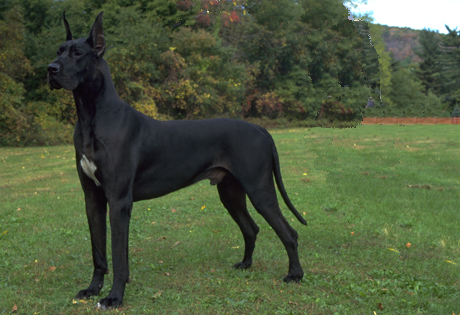AKC Great Dane and AKC Pekingese Pages
While there is a range of issues with breeding a dog for a specific trait, breed development was meant to introduce consistency into a species that is hugely variable (see above). Unfortunately, this has also lead to the assumption that all dogs that look a like must also act alike. Perhaps it is part of human nature to assume such, but it is a false assumption - one that does not hold in human beings, nor in dogs. In spite of this, it is an assumption that none-the-less dictates the fate of dogs around the world every day.
Breed-Specific Legislation (BSL), laws dictating what breeds of dog a person can or cannot own and/or how they must be handled, are common in North America at the local or state/provincial level, and around the world. Such laws are implemented under the guise of "protecting the public", but there is little evidence to support any claims of their effectiveness. The notorious inaccuracy of breed-related bite statistics, as well as the strong correlation between the proportion of bites from a certain breed and that breed's popularity, all both completely disregarded by the implementation the creation of BSL. Published studies of the topic is often highly biased due to inaccurate or incomplete reporting of bites by victims, and due to being frequently based solely on new reports, which tend to only report bites of breeds viewed as being dangerous by the public. Not only are people extremely bad at identifying dog breeds (which means that many dogs that bite end up being labelled by the media as a "pit bull" or whatever the public considers to be that year's most dangerous dog breed), but because of the large number of unregistered and mixed breed dogs getting accurate numbers for each breed of dog (or its mixes) is nearly impossible. This prevents the number of bite events from being turned into accurate rates as there is no accurate way to determine the denominator, i.e. the total number of dogs of a particular breed. This is further compounded is compounded by BSL, as dogs that are potentially of BSL-banned breeds or mixes are often not registered or licensed, further throwing off the breed counts and artificially inflating the breed-related bite-rate.
In my view, governments that implement BSL are doing so either because they have their own personal and extreme biases against certain breeds, or because it is an easy way to "do" something without having to hold owners accountable. Regardless of the breed of the dog, the owner is ultimately responsible for the dog and its actions, and I think it is time that governments start recognizing that fact, instead of punishing entire breeds of dogs for simply existing.

